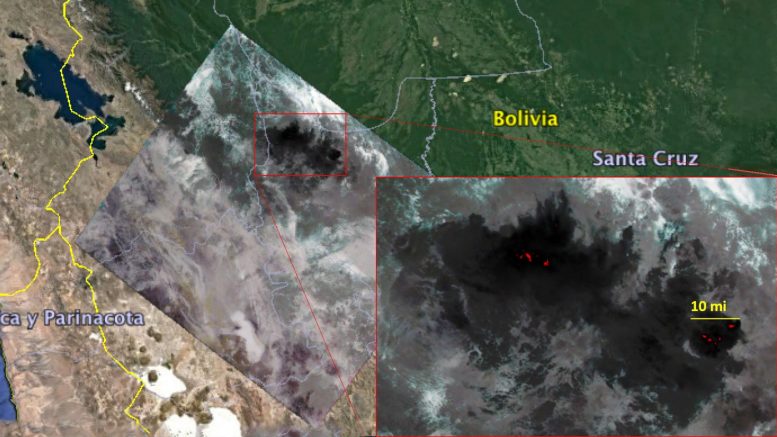Amazon fires show Bolivia needs a new economic model
Global coverage of the recent Amazon fires has focused on Brazil, but Bolivia has suffered a similar catastrophe. Over the last two months, some 2.4 million hectares of the country have burned, almost half of which is forest. At least six people have died and around 2,000 families have been affected. Hundreds of animals have also perished.
The fires emphasise the urgent need for Bolivia – and other countries – to change their model of economic development. To stop focusing exclusively on things like crop yields and beef exports, while ignoring the environmental devastation they cause. This was an issue highlighted by environmental activist and Bolivia’s former ambassador to the UN Pablo Solón in a recent newspaper interview.
Yet the Bolivian government remains wedded to the extractive model of economic development. On 28 August, as the Amazon fires are raging, President Evo Morales launched the first exports of beef to China, a move that was much criticised in Bolivia.
Los chaqueos
Among the key causes of the fires is the burning of old crops and forests to make space for agriculture and cattle. A common practice in Bolivia is ‘el chaqueo’ – slash and burn. This technique has survived for centuries because it is easy and cheap. But as recent events have made clear, the resulting fires cannot be always controlled.
The fires produced by this year’s chaqueos have already affected 10 protected areas in Bolivia. These include the Jesuit Missions of Chiquitos and Noel Kempff Mercado National Park, both of which are which are UNESCO World Heritage Sites; the huge Kaa-Iya del Gran Chaco National; and Ñembi Guasu, a significant new conservation area.
These areas – and the wider Amazon – have many resources that can be used without causing this kind of destruction. Agriculture and cattle-ranching provide significant numbers of jobs, but there are other options: forest fruits, non-timber resources, medicinal plants, and sustainable tourism, to name just a few.
Morales and Pachamama
When Morales was first elected president it seemed that Bolivia’s extractive economic model would change. He declared himself a defender of Pachamama (Mother Earth) and criticised the unceasing exploitation of the environment. ‘Mother Earth is approaching the twilight of her life cycle,’ he told the Climate Change Conference in 2015, going on to criticise the destructive force of free-market capitalism. In 2010, Morales passed a historic law that recognised the rights of ‘Mother Earth’.
Yet the practice of his government has been very different from the rhetoric. In recent years, it has provided extensive support to agribusiness elites and implemented policies that allow deforestation for cattle-ranching and agriculture. The president of the Ranchers Federation of Santa Cruz (Federación de Ganaderos de Santa Cruz), Ciro Peryra, said these policies were like the goose that lays the golden eggs.
In April 2016, at the meeting for the Paris Agreement, Morales finished his speech with the phrase: ‘Pachamama o muerte’ – ‘Mother Earth or death’. It’s time for him to start matching his strong words with equally powerful actions.
Sergio Mendoza is a Bolivian journalist who has worked as a reporter for the Bolivian national newspaper Página Siete. He is currently studying for an MA in investigative journalism at Birkbeck College, University of London.

